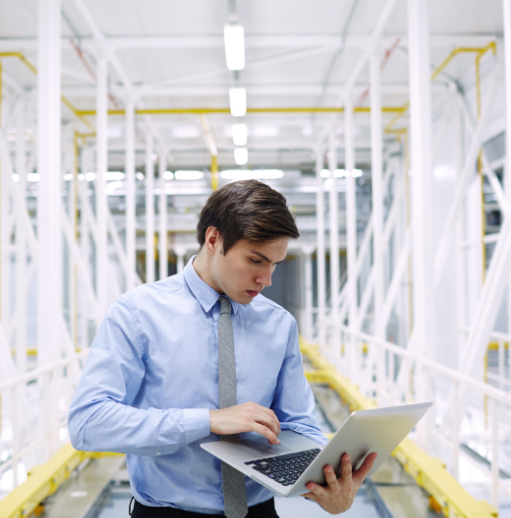Jessica Cooper is Chief Product Officer at International WELL Building Institute (IWBI), Francisco Lasta, OTR/L, Assoc. AIA is an Occupational Therapist leading the Inclusive Design team at the architecture firm Muller2, and Katie Sargent is the Integrated Marketing Manager at Work Design Magazine. This panel joined Mike Petrusky for a live broadcast revealing the winners of Work Design’s 2024 Next Work Environment Competition and they took time to discuss how the built environment plays a significant role in shaping the future of work by promoting health and well-being to support the workplace.
Agenda
- The changing nature of the workplace
- The importance of inclusivity and wellness in design
- The role of technology in shaping the future of work
- The winners of the Next Work Environment competition and the innovative ideas that won
What you need to know: Workplace takeaways
Takeaway 1: The workplace is evolving, with new technologies and awareness of inclusivity, health, wellness, and sustainability driving changes.
The panel discussed how the workplace is evolving at a rapid pace. Jessica Cooper stressed the importance of meeting the shifting needs of employees. “We need to try new things. We need to listen to the people about what they need in their workplace. And we are also in need of understanding the benefits of what we’ve implemented and then using that to inform future decisions,” she explained. The panel agreed that the future workplace should support employees’ well-being and happiness, with Francisco Lasta emphasizing that it should “meet the needs that we have.”
Additionally, Cooper noted that technologies are becoming available that can support inclusivity, health, wellness, and sustainability in the workplace. She stated, “I think we’re at a point where that level of understanding of what is needed and the impact of what we ultimately implement is becoming so critical.” Lasta echoed this sentiment, adding that the future would likely bring more complex problems requiring diverse professional perspectives for effective solutions.
Takeaway 2: The importance of pre and post occupancy evaluation in workplace design.
During the discussion, Cooper highlighted the significance of conducting pre- and post-occupancy evaluations in professional practice. They noted that this process, although often overlooked due to budget constraints, is critical to understand what is needed in the workplace and assess the impact of implemented changes.
“We need clients to adopt that as a best practice and pay for it. It’s worth their money. It’s worth their investment. I think it’ll help us all move further, faster,” Cooper stated.
Takeaway 3: The potential of Artificial Intelligence (AI) in shaping the future workplace.
The panelists discussed the increasing prominence of AI in the workplace and its potential crossover with other emerging technologies. Lasta expressed excitement over how AI could influence change exponentially when combined with technologies like 3D printing, quantum computing, and carbon storage.
However, Lasta also cautioned about the possible challenges this might bring, such as increased client expectations. “What would be the problems that we might encounter? Would there be like an increased expectations from the clients?” they wondered. Despite these potential challenges, the panelists agreed on the exciting possibilities that AI and other technological advancements could offer in creating a supportive and inclusive workplace.
Workplace management insights
- The workplace is rapidly evolving with new technologies and a greater focus on inclusivity, health and wellness, and sustainability.
- The built environment can significantly impact health and wellbeing, and organizations are becoming more aware of this influence.
- Interprofessional collaboration is crucial for solving complex problems in the workplace.
- Pre- and post-occupancy evaluations are valuable tools for understanding what is needed in a workplace and assessing the impact of implemented changes.
- Artificial Intelligence (AI) crossing over with other emerging technologies could bring exponential change to the workplace.
See the results of the 2024 Next Work Environment Competition
Check out the “On My Way To Work” video series
Do a deep dive into more workplace insights by exploring all Workplace Innovator podcast episodes








